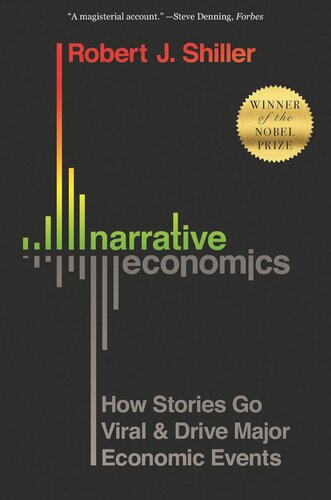

Most ebook files are in PDF format, so you can easily read them using various software such as Foxit Reader or directly on the Google Chrome browser.
Some ebook files are released by publishers in other formats such as .awz, .mobi, .epub, .fb2, etc. You may need to install specific software to read these formats on mobile/PC, such as Calibre.
Please read the tutorial at this link: https://ebookbell.com/faq
We offer FREE conversion to the popular formats you request; however, this may take some time. Therefore, right after payment, please email us, and we will try to provide the service as quickly as possible.
For some exceptional file formats or broken links (if any), please refrain from opening any disputes. Instead, email us first, and we will try to assist within a maximum of 6 hours.
EbookBell Team

4.4
32 reviewsFrom Nobel Prize–winning economist and New York Times bestselling author Robert Shiller, a groundbreaking account of how stories help drive economic events—and why financial panics can spread like epidemic viruses
Stories people tell—about financial confidence or panic, housing booms, or Bitcoin—can go viral and powerfully affect economies, but such narratives have traditionally been ignored in economics and finance because they seem anecdotal and unscientific. In this groundbreaking book, Robert Shiller explains why we ignore these stories at our peril—and how we can begin to take them seriously. Using a rich array of examples and data, Shiller argues that studying popular stories that influence individual and collective economic behavior—what he calls "narrative economics"—may vastly improve our ability to predict, prepare for, and lessen the damage of financial crises and other major economic events. The result is nothing less than a new way to think about the economy, economic change, and economics. In a new preface, Shiller reflects on some of the challenges facing narrative economics, discusses the connection between disease epidemics and economic epidemics, and suggests why epidemiology may hold lessons for fighting economic contagions.